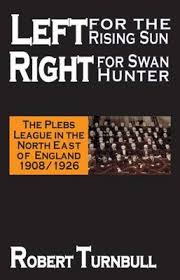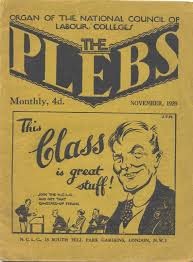The
big debate in the general booktrade - featured heavily in the
Guardian
- is about whether the day of the celebrity biography has finally
come to an end or is simply slowing down. At the other end of the
spectrum even commercial publishers have started noticing that left
wing books sell, and sell well, with Allen Lane publishing The
Establishment
by Owen Jones. This book topped the Christmas best-seller charts at
Nottingham's Five Leaves Bookshop and at News from Nowhere in
Liverpool, coming second at Housmans in London only to Housmans' own
annual Peace
Diary,
despite it being a £16.99 hardback. Allen Lane, the top end of the
Penguin empire, also published Naomi Klein's This
Changes Everything,
the one book that really might have an impact on climate change and a
book which places the blame for climate change right where it belongs
- with capitalism.
Five
Leaves has just completed its first full year trading as an
independent and radical bookshop. Looking at our December
best-sellers, ten of the top fifteen were political books. The only
novel was John Harvey's Darkness,
Darkness
which was set during the miners' strike of thirty years ago and in
modern times. Indeed, three of the fifteen were related to the
miners' strike. The strike remains a defining part of our common
history. We're pleased with our first year, but just as pleased that
News from Nowhere had a record Yuletide and a record year. The
publicity around their fortieth birthday helped as did the
unfortunate closure of a Waterstones' branch in the same street. Many
people, in person and online prefer to "shop with the real
Amazons" at this women-run bookshop. The radical book-trade is
nothing if not tenacious! News From Nowhere, London's Gay's the Word
and Housmans are positively venerable; Wordpower in Edinburgh and
the two anarchist distributors Active Distribution and AK
Distribution have passed out of their teenage years but there is a
range of younger projects that seem to be sustaining themselves. All
strive to be part of their local community, working with campaign and
other groups. It can only be positive that members of the Alliance of
Radical Booksllers are sprinkled around the country - it's not a
London-centric membership.
AK
Distribution report that their best selling titles includes books on
feminism and economics and in Scotland Wordpower had large sales for
books related to the Scottish referendum. Another trend is the
renewed interest in "people's history". In Nottingham Chris
Richardson's City
of Light,
a book about radical life in the city in the year of 1844 has sold
over 500 copies while Spokesman Books and Merlin Press offer a
different history of World War One that that pursued by our
Government. For those of us keen on pamphlets it is s good to see
Stop the War Coalition's pamphlet on WWI, No
Glory.
People
will read pamphlets if they are stocked by bookshops - something
commercial bookshops are loathe to do. Five Leaves is a
publisher turned bookseller and having a shop has enabled us to
return to being a pamphleteer too. Our first two titles will be
available shortly, one being a forgotten essay by Edward Said on
Jerusalem, sadly as appropriate now as when first written, the
second on the Communist Doctor
Who writer,
Malcolm Hulke, whose existence we came across in the Morning
Star!
Radical
bookshops are not the only side of the business with claims to
venerability. Merlin Press will shortly be sixty and its publishing
arm is run in tandem with Global Book Marketing, representing
many publishers from home and abroad while the main distributor
of radical publishers and magazines, Central Books, has been
in business since 1939. Nobody rests on their laurels
though, and the Russell Press (set up in the heady days of 1968) has
been at the forefront of digital printing and reports more and more
groups using this affordable technology to publish local and people's
histories.
Bookshops,
publishers, distributors, printers... and prizes and bookfairs. The
Bread and Roses Award for Radical Publishing is four in 2015 and will
be funded by the General Federation of Trade Unions while in
Nottingham the mini-festival of the same name was established in
November also with trade union support. The number of local anarchist
bookfairs continues to grow while the London Radical Bookfair is now
the major date for the whole radical booktrade to come together. This
year the Bookfair will again be at the Bishopsgate Institute, on 9th
May.
So
what are the big radical titles going to be for 2015? We too are
finding a lot of interest in feminism, especially from young women,
but the publishers are a bit slow to catch up. An exception is the
short book We
Should All Be Feminists by
Chimamanda Ngozi Adichie. The Green MP Caroline Lucas should get a
lot of attention in March with her Honorouble
Friends? discussing
her work inside and outside of Parliament while Paul Mason's Post
Capitalism will
be a summer best seller. Looking at the lists of dedicated left wing
publishers, Pluto is bringing out David Rosenberg's Rebel
Footprints,
a walking guide to the capital for lefties, due in March (the author
first got to know he byways of London as Central Books' van driver)
while the Verso paperback of A
Philosophy of Walking by
Frédéric
Gros might enable us to think about walking without, you know,
actually doing it.
And
Five Leaves? Well, there is the small matter of an election coming.
One of our big books in 2014 was Harry Paterson writing on
Nottinghamshire during the miners' strike where, among other things
he discussed the UDM. In 2015 we are letting him loose on the
the political equivalent of a scab union, UKIP, with We
Need to Talk About Nigel.
We could hardly not.
A shorter version of this article will appear in the Morning Star









